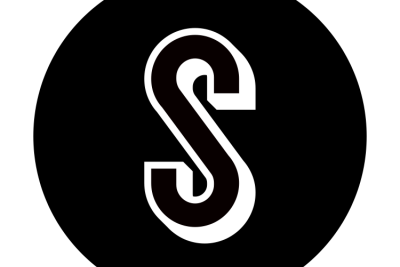A Spark of Hope for the Return of In-Person Student Events at Seattle U

With the 2021-2022 academic school year just around the corner, student clubs at Seattle University are abuzz with the prospect of finally returning to in-person events and saying goodbye to all the restrictions of virtual events.
Cienne Bronson, the Volunteer Event Coordinator for Circle K International and a second-year interdisciplinary liberal studies major, is patiently waiting in anticipation.
“We’re not getting very much information. It’s a waiting game,” Bronson said. “Especially now, it’s like we’re in a transition period…we’re anticipating having to go into the next quarter being prepared whether it’s in-person, in-person with a lot of restrictions or virtual.”
Circle K International is a service-oriented club that relies heavily on the collaborative aspect of volunteer engagement through local community service projects. With the pandemic, they have been limited to online projects and volunteer work.
“There are definitely a handful of activities that we could do outside. There’s a lot of great walkable opportunities in Seattle. I hoped to plan more outdoor volunteer events at local farms, planting trees, or doing neighborhood trash clean-ups,” Bronson said. “ As far as I know, clubs just can’t meet because we aren’t allowed to gather.”
Bronson has felt challenged by the limitations of virtual events due to the in-person gathering policies being unclear and regularly changing. She felt daunted by the potential consequences of incorrectly planning an in-person event.
James Willette, Dean of Students, is working to make the most current policy information more accessible and understandable for student organizations.
“If students want to get together informally, as long as everyone’s wearing a mask and maintaining distance and they’re outside, then essentially the rule is just to follow those basic disease prevention policies to be safe,” Willette said.
However, Willette added that there are still strict capacity guidelines in place that students must follow if they are holding formal event gatherings.
“If students want to plan events and programs, there is more structure involved with that. Right now, the program or event cannot exceed five people from two households if it’s indoors. And it can’t exceed 15 people from two households if it’s outdoors,” Willette said.
Willette stressed that the goal is not to intimidate or restrict club members from engaging with each other; however, health and safety rules must still be taken seriously. The current policies are aligned with legal requirements and public health guidance based on Gov. Inslee’s executive proclamation on COVID-19 guidance for higher education.
“If a club or organization were to violate the disease prevention policies, then they could be issued sanctions as a group,” Willette said. “Probably educational to start, and then reminders about the policy and request for people to comply. But any club or organization that repeatedly violates the Code of Conduct could lose their designation as an official club.”
The point of getting student organizations to comply through educational sanctions is ultimately to prevent the spread of the disease, Willette added.
“Safety is our absolute top priority. We don’t want students getting sick,” Willette said. “We appreciate everyone’s continued patience and commitment to keeping each other safe.”
Willette also highlighted some safe alternatives that student organizations could pursue to expand in-person event participation. For example, although the maximum capacity for indoor events is five people, students could include more participants if they book a space for a longer period and allow the attendees to come at separate time blocks, rotating in and out of the shared space without ever exceeding capacity and sanitizing in between rotations.
Lauren Campbell, President of RedZone and a fourth-year biochemistry major, recently helped to plan RedZone’s “Amazing Race” event May 7. It was one of their first in-person events since the beginning of the pandemic.
“Instead of having one congregation place, we had different stations and we picked common open spaces like the Quad, or Library Plaza or behind Admin,” Campbell said. “It was approved because it was already socially distanced with the stations being so far away from each other.”
RedZone is an official organization of the university that prides itself on bringing the student body together through school spirit and traditions. Although this event was able to be held in person, they faced challenges with restoring to previous levels of student spirit and participation.
“It’s hard to get the word out. We definitely had less participants than we would have before for an on-campus event,” Campbell said. “There were less people passing by on-campus and usually most people that joined our events were students who passed by. Another challenge is incentives… one of the biggest incentives that clubs use all the time is providing free food from catering, but because of COVID-19 guidelines, we couldn’t go to Chartwells this year.”
Both these student leaders and Willette shared the same sentiment—they are looking forward to the return of in-person activities and the full revival of student life on our Seattle U campus.
“No one wants these restrictions. We really value in-person engagement between staff and students,” Willette said. “I do hope that there will be new guidance for the fall that allows for bigger groups, and for looser restrictions on our events. I’m also reassured by the fact that we’re requiring students to be vaccinated. As long as we stay on the trajectory that we’re on, I think we can anticipate some loosening of these restrictions in the fall.”
To keep up to date with student organization guidelines, contact the Center for Student Involvement.

